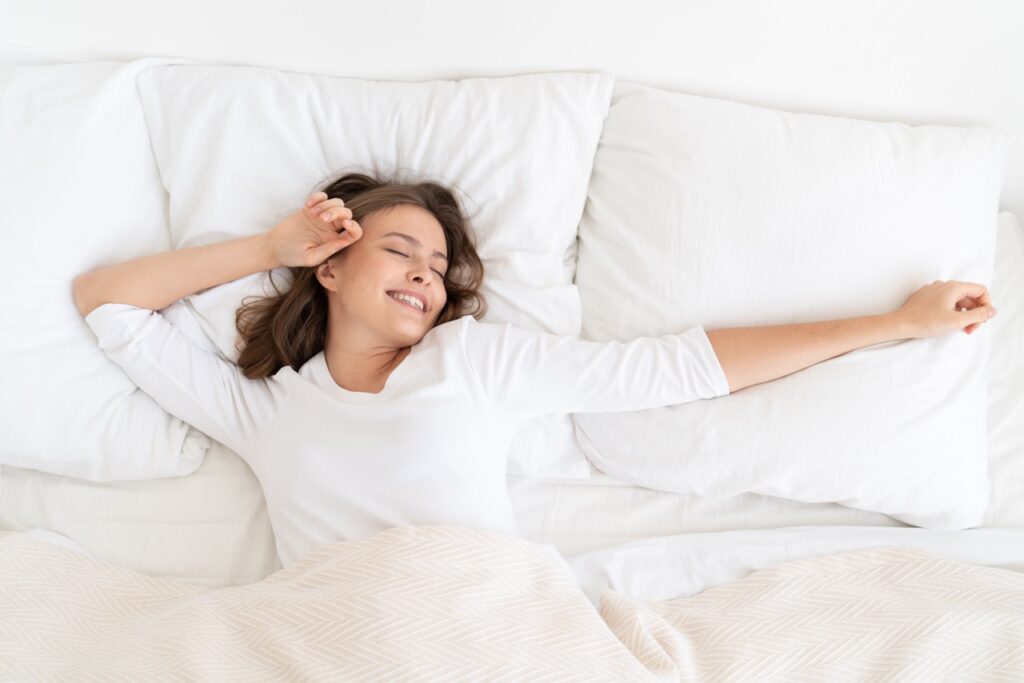
If you’re seeking ways to get better sleep, keep reading. This blog is for you. Quality sleep is essential for our physical, mental, and emotional well-being. In this blog, we’ll explore 12 practical ways to get a good night’s sleep, provided by Health and Wellness Coach Jacqueline Ford.
Stick to a Schedule to Get Better Sleep
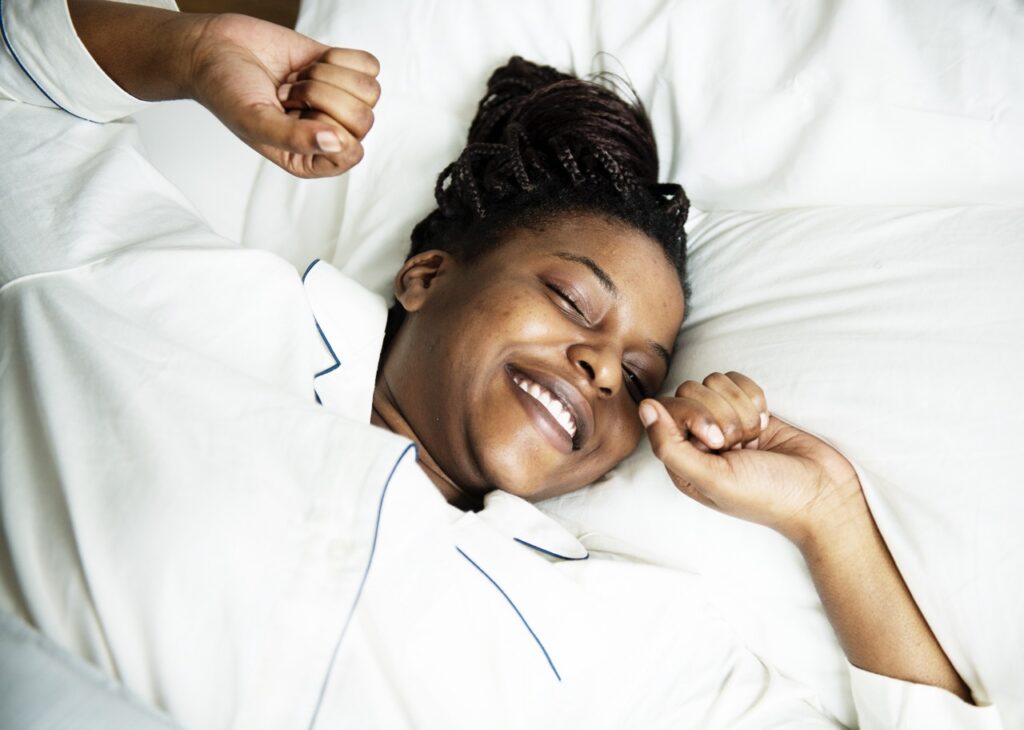
Going to bed and waking up at the same time every day helps regulate your body’s internal clock. Consistency reinforces your body’s natural sleep-wake cycle.
Create a Relaxing Bedtime Routine
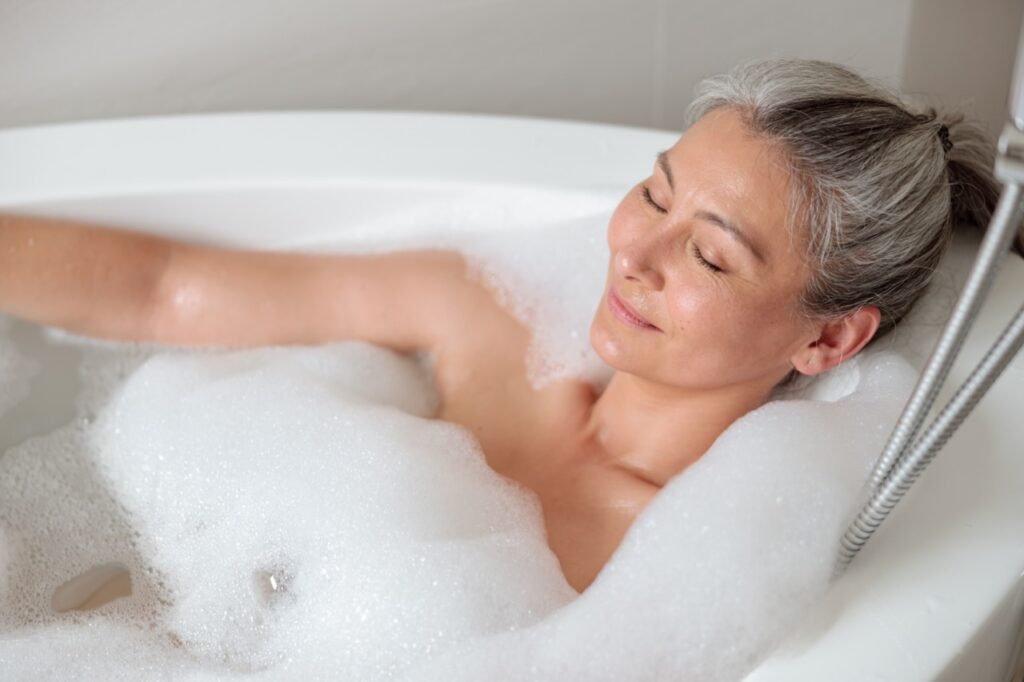
Establishing a sleep routine signals your body that it’s time to wind down. Activities like reading, taking a warm bath, or practicing relaxation techniques can help calm your mind and prepare you for sleep.
Make Your Sleep Environment Comfortable
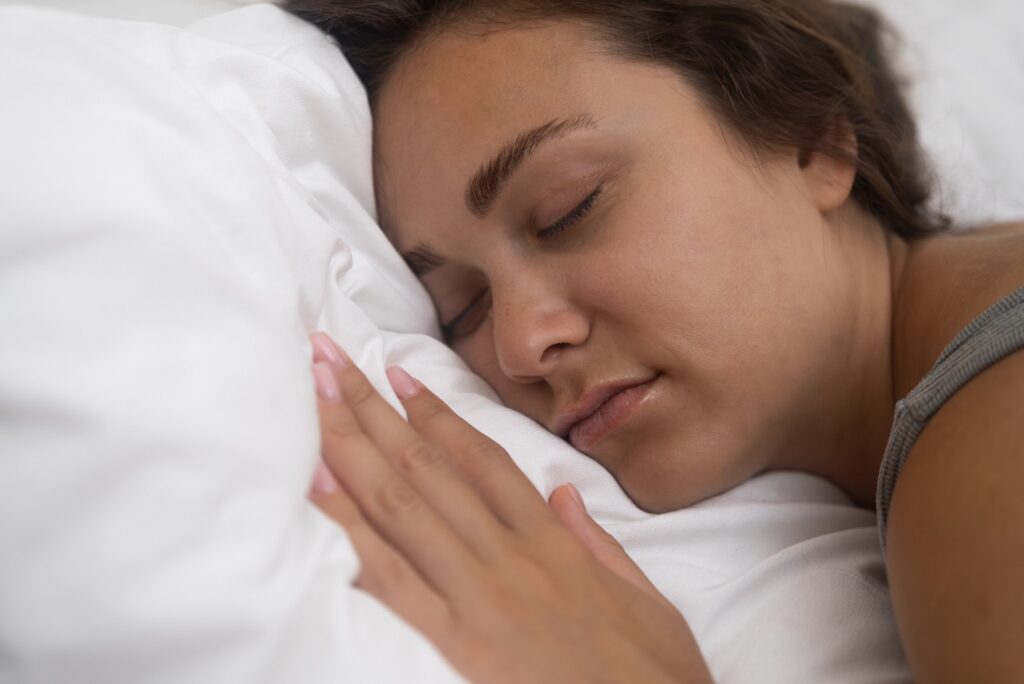
A comfortable sleep environment is crucial. Here are some steps to take:
- Keep your bedroom cool, dark, and quiet.
- Invest in a comfortable mattress and pillows that provide adequate support for a good night’s sleep.
- Purchase pillows that are designed to be comfortable for your sleep position. There are pillows for side sleepers, back sleepers, and stomach sleepers.
- Use blackout curtains to block out external light to create an environment that promotes restful sleep.
Limit Screen Exposure Before Bedtime
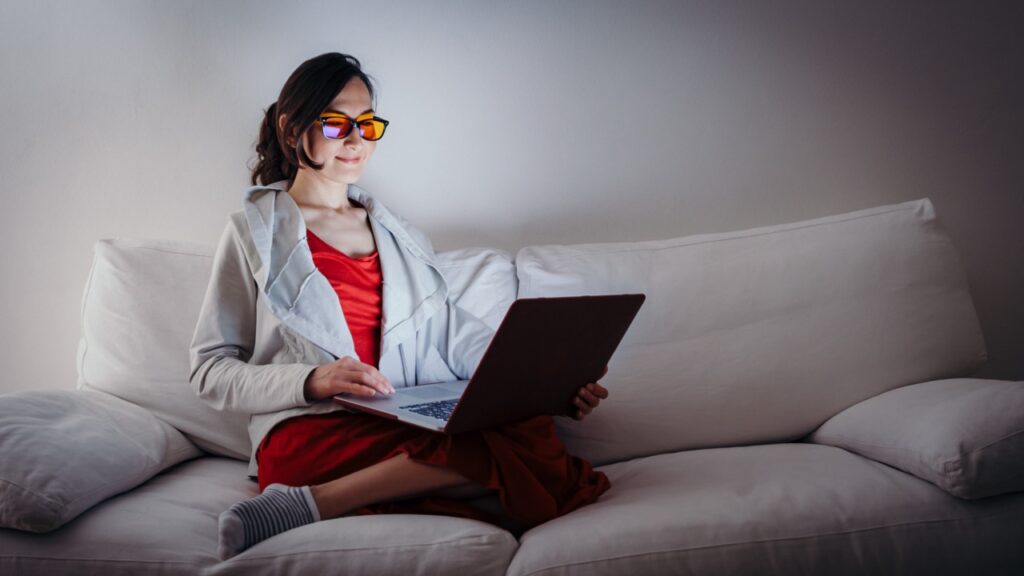
Limiting screen exposure before bed can also help you get better sleep. The blue light emitted by computer screens and other digital devices can suppress melatonin production, making it harder to fall asleep. If you enjoy reading on a mobile device before bed, turn on the night mode on your device to reduce blue light. You can also adjust the brightness of the screen.
Another option is to wear blue light glasses in the evenings when you use digital devices. This is a simple and effective way to help prevent potential sleep disturbances caused by prolonged screen use at night. These glasses have a special coating that filters out the sleep-disruptive blue light emitted by screens. This helps avoid negatively impacting the body’s melatonin production.
Watch What You Eat Before Bed
Another way to help you sleep better is to avoid heavy meals close to bedtime because they can cause discomfort. Consuming sugary foods, particularly close to bedtime, can negatively affect sleep quality by causing rapid blood sugar spikes and crashes. These fluctuations may lead to disruptions in sleep patterns and contribute to restlessness during the night. If you’re hungry before bed, choose a light, healthy snack.
Limit stimulants like caffeine and nicotine to avoid sleep disruption.
Exercise Regularly to Get Better Sleep
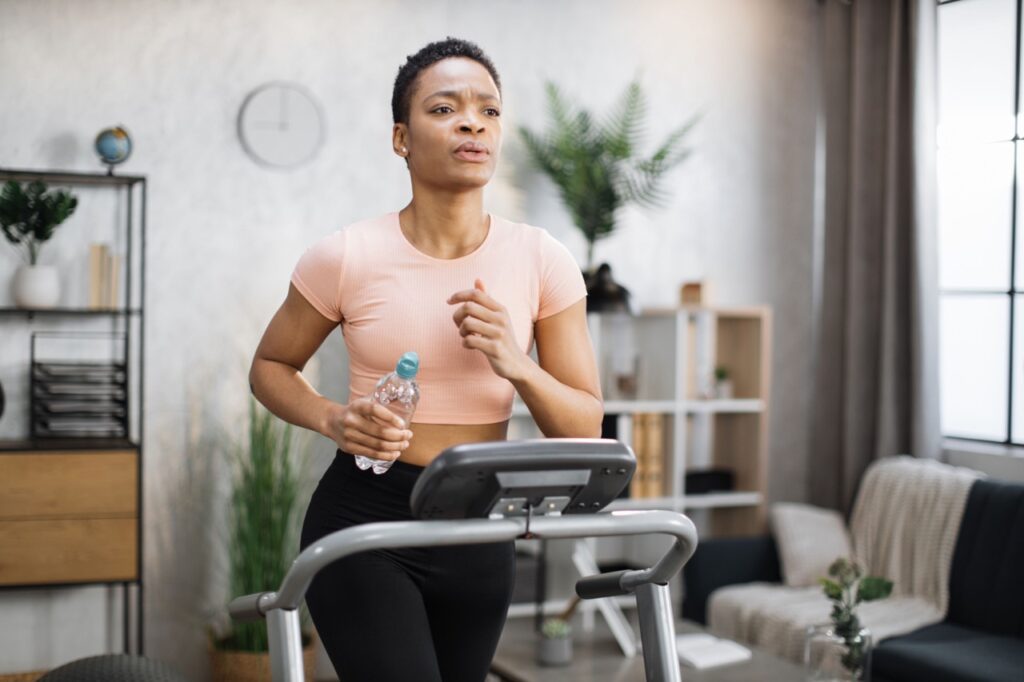
Regular physical activity promotes better sleep. Aim for 20-30 minutes of moderate exercise several days a week. Finish your workout a few hours before bedtime to allow your body to wind down.
Manage Stress
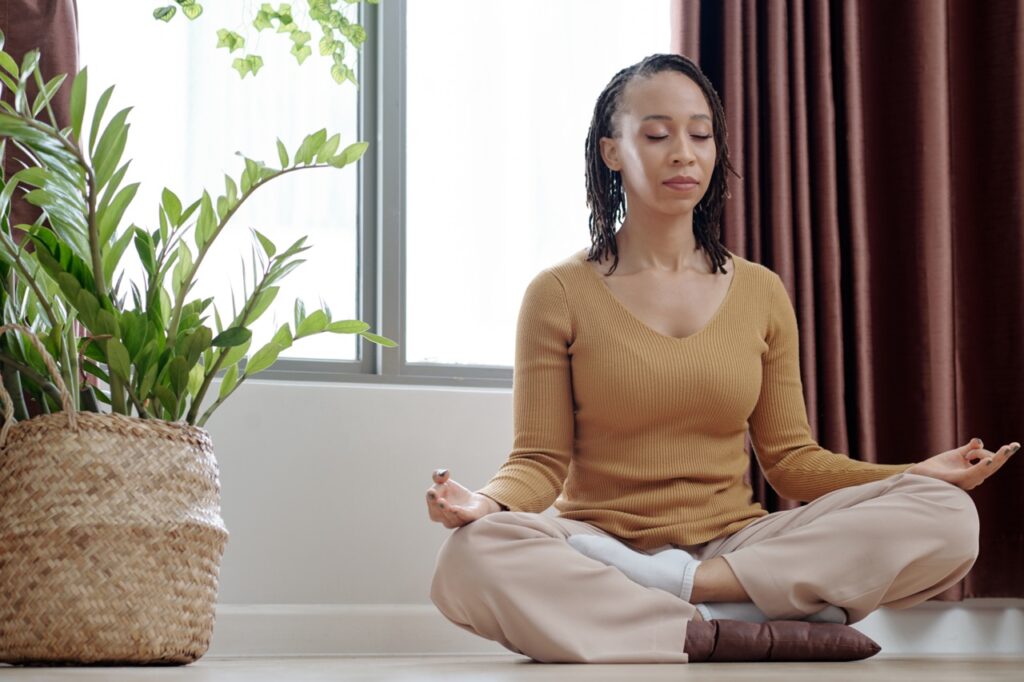
High stress levels can contribute to insomnia. Practice stress-reducing techniques like deep breathing or progressive muscle relaxation to relax your mind and body.
Mindful meditation is another great option to get better sleep. For more tips to reduce stress, read 15 Effective Tips to Reduce Stress and Anxiety.
Limit Naps
Short naps can be rejuvenating, but long or late-afternoon naps can interfere with nighttime sleep. Keep naps short and try to take them earlier in the day.
Watch What You Drink Before Bed
It’s important to eliminate or reduce the consumption of some beverages before bed. Drinking caffeinated beverages and alcohol in the evening can cause sleep problems.
Sugary drinks, especially close to bedtime, can disrupt sleep by causing fluctuations in blood sugar levels. This leads to restlessness and reduced sleep quality. Additionally, the stimulant effect of sugar may interfere with the body’s natural transition into a restful state.
Also, avoid drinking large amounts of water before bedtime to avoid waking up for bathroom breaks.
Try Relaxing Aromatherapy
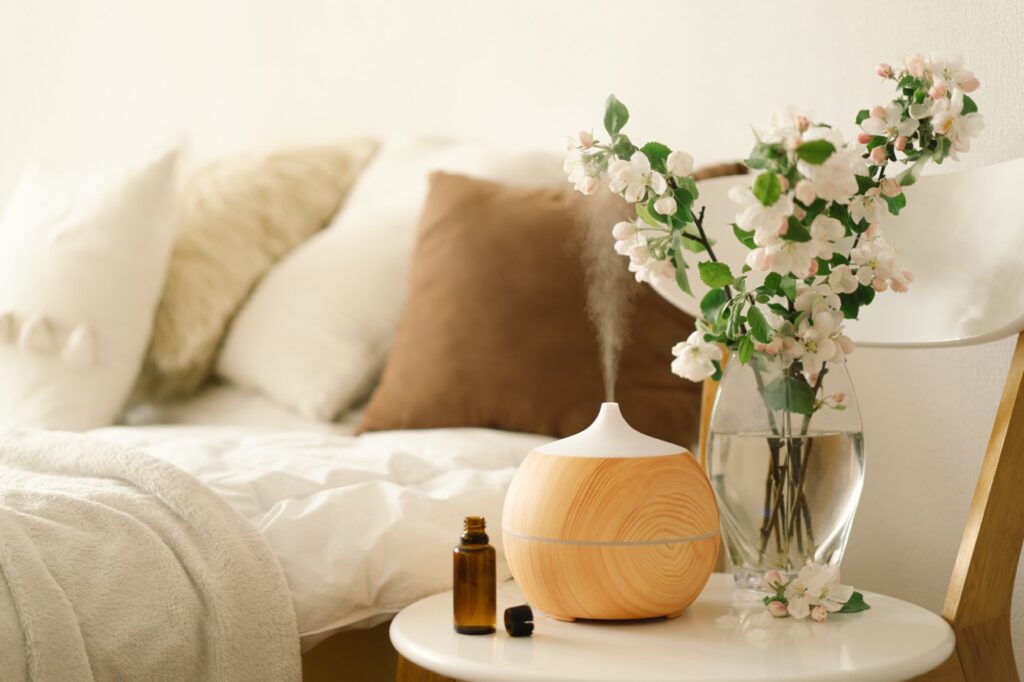
When used in aromatherapy, lavender and various essential oils offer a natural and calming remedy to get better sleep. The soothing scents of these oils, especially lavender, have been shown to reduce stress and anxiety, which creates a tranquil, relaxing atmosphere. Inhaling these essential oils can help induce a sense of calmness to assist with a smoother transition into restful sleep.
Use A Noise-Cancelling Machine
A noise-canceling machine is an effective tool to promote a good night’s sleep. It helps creates a peaceful environment by masking disruptive noises, such as traffic or household sounds. The consistent, soothing sound is a buffer that promotes relaxation and contributes to an undisturbed and restful night’s sleep.
Listen To Relaxing Music
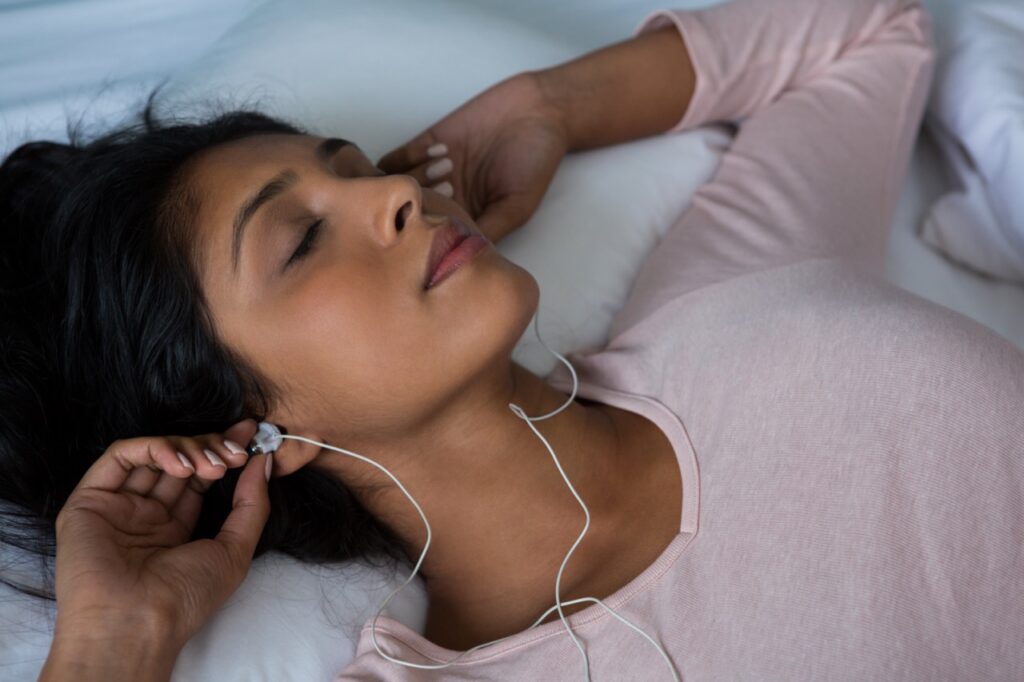
Listening to relaxing music before bedtime can be a powerful tool for achieving a good night’s sleep. Soothing music is a natural sleep-inducer. Calming melodies can lower stress levels, slow down heart rate, and ease the mind into a state of relaxation.
These tips work together to create a holistic approach to better sleep. Experiment with different strategies to find what works best for you. Be patient because it may take time for your body to adjust to new habits.
Prioritizing good sleep is an investment in your overall health and well-being. If you need help incorporating ways to get better sleep based on your lifestyle, contact a health and wellness coach to get a custom plan that works for you.

